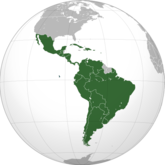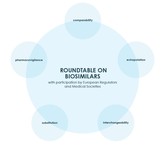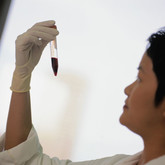Biosimilars/Research
Biosimilars in oncology in Europe
In the European Union (EU), a legal framework for approving biosimilars was established back in 2003. This framework allows for biosimilars to be approved using an abbreviated pathway centrally via the European Medicines Agency (EMA) [1].
The biosimilars market in Latin America: a summary
A review of the biosimilars market in Latin America [1] finds that Argentina, Brazil and Mexico have the largest number of approved similar biotherapeutic products (SBPs), while information in other countries is more limited. The review recommends investment in biotechnology hubs and further development of regulation on biological drugs.
Adalimumab copy biological shown to be safe and effective
Chinese biopharmaceutical firm Innovent Biologics’ adalimumab copy biological has shown comparable safety and efficacy to the originator drug, Humira (adalimumab), in patients with ankylosing spondylitis.
Sustainable biosimilar policies in Europe
A review of approaches to biosimilar policy in Europe [1] highlights key principles for a sustainable biosimilar market, including supporting innovation and allowing for multiple suppliers.
Biosimilar infliximab reduces medication costs by two thirds in Finland
A study of 54 people with inflammatory bowel disease (IBD) in Finland showed that switching to biosimilar infliximab has no significant impact on health-related quality of life or disease activity, while reducing costs by two thirds [1].
Trastuzumab biosimilar Kanjinti is stable over extended storage periods
An investigation of the quality and in-use stability of diluted trastuzumab biosimilar Kanjinti (also known as ABP 980) versus the reference trastuzumab demonstrated no clinically meaningful differences in stability and activity over extended storage periods, according to Crampton et al. [1].
Quotas improve biosimilar use in Germany
An assessment of the role of cost control measures on biological drugs in Germany finds that quotas for biosimilars are in some cases associated with increased use and are overall more effective than priority prescribing [1].
Denmark achieves 83% reduction in adalimumab costs through switching
Spending on adalimumab in Denmark decreased by almost 83% between September and December 2018, thanks to a mandatory switching policy.
Biosimilars in Belgium: increasing competition
Competition following the entry of biosimilars is still limited in Belgium, which is mirrored in low biosimilar market shares. Although (short-term) cost savings are realized by the implementation of mandatory price reductions on originator medicines (and obtaining high biosimilar market shares should thus not be a goal in itself), biosimilars can play a key role in ensuring the long-term sustainability of the Belgian off-patent biologicals market.
Positive phase I results for Innovent’s ipilimumab copy biological
China-based Innovent Biologics (Innovent) announced on 3 June 2020 positive phase I results for its candidate ipilimumab copy biological, IBI310.
Successfully transitioning patients with IBD to biosimilars
Pharmacists and physicians from the Boston Medical Center describe the successful transition of patients with inflammatory bowel disease (IBD) using the originator infliximab biological, Remicade, to the infliximab biosimilar, Inflectra (infliximab-dyyb) [1].
EULAR recommendations for DMARDs in rheumatoid arthritis
The European League Against Rheumatism (EULAR) has updated its recommendations on the management of rheumatoid arthritis (RA) using synthetic and biological disease-modifying antirheumatic drugs (DMARDs) [1].
Positive phase Ib results for TYVYT + bevacizumab copy biological IBI305
China-based Innovent Biologics (Innovent) announced on 1 June 2020 positive results for a phase I trial of its candidate bevacizumab copy biological, IBI305, in combination with TYVYT (sintilimab injection) in the treatment of advanced hepatocellular carcinoma, which is the most common form of liver cancer.
Clinical equivalence in oncology biosimilar trials
Researchers from the US propose using restricted mean survival time (RMST) rather than the overall response rate (ORR) and progression-free survival (PFS) or overall survival (OS) in clinical trials evaluating the equivalence of biosimilars [1].
Use of biosimilar infliximab gives savings for patients
Canadian researchers carried out a cost-utility analysis of switching from reference to biosimilar infliximab compared to maintaining reference infliximab in adult patients with Crohn’s disease (CD). From this analysis they found that using biosimilar infliximab resulted in cost savings for patients [1].
Patients’ perceptions of switching to biosimilars
A patient’s characteristics make them more likely to have negative perceptions about switching to biosimilars, according to a study by researchers from New Zealand [1].
Clover starts phase III trial for etanercept copy biological in China
At the end of December 2019, Clover Biopharmaceuticals (Clover), a Chinese company focused on biological therapies, announced the start of a phase III trial of their etanercept copy biological (SCB-808), a proposed copy biological to originator biological Enbrel (etanercept).
Positive phase I results for Qilu’s bevacizumab copy biological
Positive results were reported from a phase I trial of a bevacizumab copy biological, QL1101, which the authors say is ‘the first study to compare the pharmacokinetics of QL1101, a proposed bevacizumab [copy biological], with Avastin’ [1].
Positive results for Bio-Thera’s bevacizumab copy biological
China-based Bio-Thera Pharmaceuticals (Bio-Thera) announced positive results from a phase III trial of its bevacizumab copy biological.
How to make biological drugs more affordable
Biological drugs remain unaffordable for many in the US due to strategies used by pharmaceutical companies and negative messaging about biosimilars, explains a recent commentary by Dr Joel Lexchin, School of Health Policy and Management at York University, Canada [1].





















